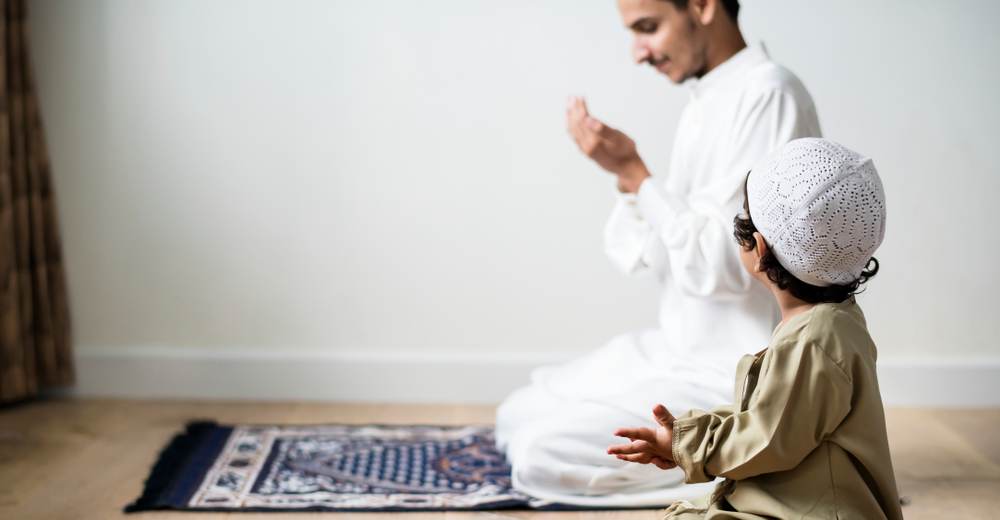Should We Believe That Our Prayers Will Be Answered?
Answered by Shaykh Abdullah Anik Misra
Question
I’m told when making dua that I should have absolute conviction that it will be answered.
Can you please elaborate on what this means? Additionally, how does one foster this conviction?
Answer
In the Name of Allah, Most Merciful and Compassionate
The Prophet Muhammad (Allah bless him and give him peace) said, “Call upon Allah with complete conviction that you will be answered, and know that Allah does not answer the prayer coming from a heedless, distracted heart.” [Tirmidhi]
The Meaning of Having “Complete Conviction”
The meaning of having “complete conviction” can mean one of two things:
The first is that you make the supplication (dua) to Allah, observing all the etiquette and with complete submission, as though you have done everything in your power to make yourself deserving of your prayer being accepted. This includes doing good, leaving wrong, seeking the blessed times and places and states to make supplication, having a present heart, and so on.
The second meaning is that you are completely convinced that Allah Most High will answer your prayer in a way that is best for you and not disappoint you, not due to your own state, but due to His Generosity and Mercy. Someone who is convinced they will be answered will be more sincere and confident in the way they ask. Moreover, someone whose faith and trust in Allah is complete is more deserving of being answered than one who is doubting or not sincere. [Qari, Mirqat al-Mafatih; Tibi, Sharh Mishkat al-Masabih]
This applies equally for whether the thing being asked for is great or small, as everything is equally easy for Allah Most High to create and grant. You don’t have to worry about whether you deserve it or not; leave that to Allah to decide – your job is just to ask Him wholeheartedly.
How to Foster Complete Conviction
The ways to foster this conviction are to prepare oneself with all of the etiquettes of supplication before making it and remind oneself of Allah’s promise and generosity (this hadith itself helps foster that). One can also make more supplications for things throughout the day to see the effects of accepted supplication in one’s life. Supplication is, in essence, part of our relationship with Allah Most High, and relationships take work and sincerity.
When we make supplication, it is Allah Most High Himself who has released our tongues to call on Him because He wants to give us something. It behooves us then to always think well of Allah.
This series of videos on the “Adab of Dua” is highly recommended:
Certainty In Divine Response – Adab of Dua 07 – Shaykh Faraz Rabbani – YouTube
The Reality and Etiquettes of Supplication: A Reader – SeekersGuidance
Wassalam,
[Shaykh] Abdullah Anik Misra
Checked and Approved by Shaykh Abdul-Rahim Reasat
Shaykh Abdullah Misra was born in Toronto, Canada, in 1983. His family hails from India, and he was raised in the Hindu tradition. He embraced Islam in 2001 while at the University of Toronto, from where he completed a Bachelor of Business Administration. He then traveled overseas in 2005 to study the Arabic language and Islamic sciences in Tarim, Yemen, for some time, as well as Darul Uloom in Trinidad, West Indies. He spent 12 years in Amman, Jordan, where he focused on Islamic Law, Theology, Hadith Sciences, Prophetic Biography, and Islamic Spirituality while also working at the Qasid Arabic Institute as Director of Programs. He holds a BA in Islamic Studies (Alimiyya, Darul Uloom) and authorization in the six authentic books of Hadith and is currently pursuing specialized training in issuing Islamic legal verdicts (ifta’). He holds a certificate in Counselling and often works with new Muslims and those struggling with religious OCD. He is an instructor and researcher in Sacred Law and Theology with the SeekersGuidance The Global Islamic Seminary. Currently, He resides in the Greater Toronto Area with his wife and children. His personal interests include Indian history, comparative religion, English singing, and poetry.
